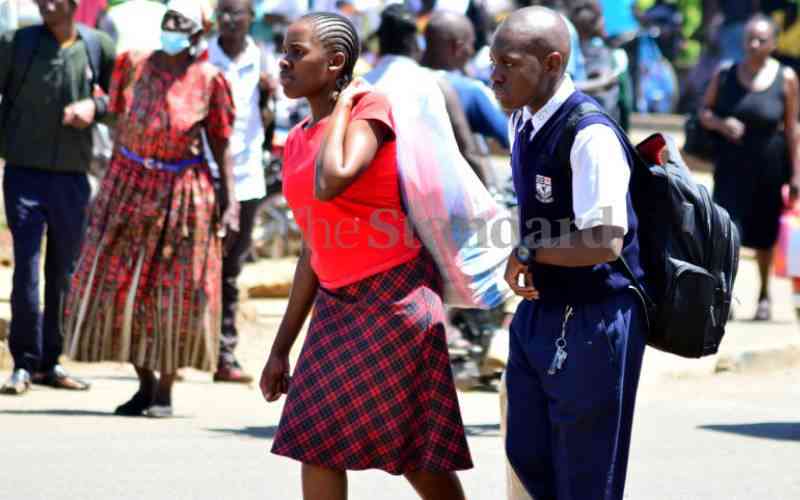×
The Standard e-Paper
Join Thousands Daily

Parents face a daunting task as schools reopen next week, burdened by fare hikes, the rising costs of living, illegal levies, and the need to purchase school items.
As some learners transition to new grades, schools will be welcoming a record 1.4 million others to Form One as from January 15.